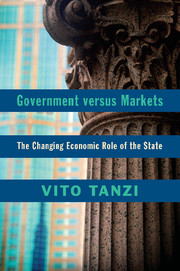Summary
There is no more fundamental question in economics than what role the state or the government should play in a country's economy. How wide and deep should such a role be in a market economy? What should the state do? How much should be left to the market and to the free economic decisions of individuals or groups of citizens? How should the state perform its role? What instruments should it use? The French poet Paul Valéry once wrote that “if the state is strong, it will crush us; if it is weak, we shall perish.” Philosophers from Plato through Hobbes, Locke, Hume, Rousseau, and others, have addressed the question, focusing mainly on the political role. As in many other human activities, the secret is in finding the right balance. As noted by President Barack Obama at his inauguration, the aim is to find a government that works well.
Who decides what is the right balance? Few question that the state must play a significant role in an organized, modern society, or that organized societies need a government. The more significant question is what such a government should do and how it should do it. As with many things in life, the problem is to find the optimal dose of intervention, between one extreme, set by “centrally planned economies,” where those who claim to represent the state make all the economically relevant decisions on behalf of the citizens, and the other extreme, set by the “laissez-faire ideology,” where the role of the state is confined to a few basic or essential functions.
- Type
- Chapter
- Information
- Government versus MarketsThe Changing Economic Role of the State, pp. ix - xivPublisher: Cambridge University PressPrint publication year: 2011



